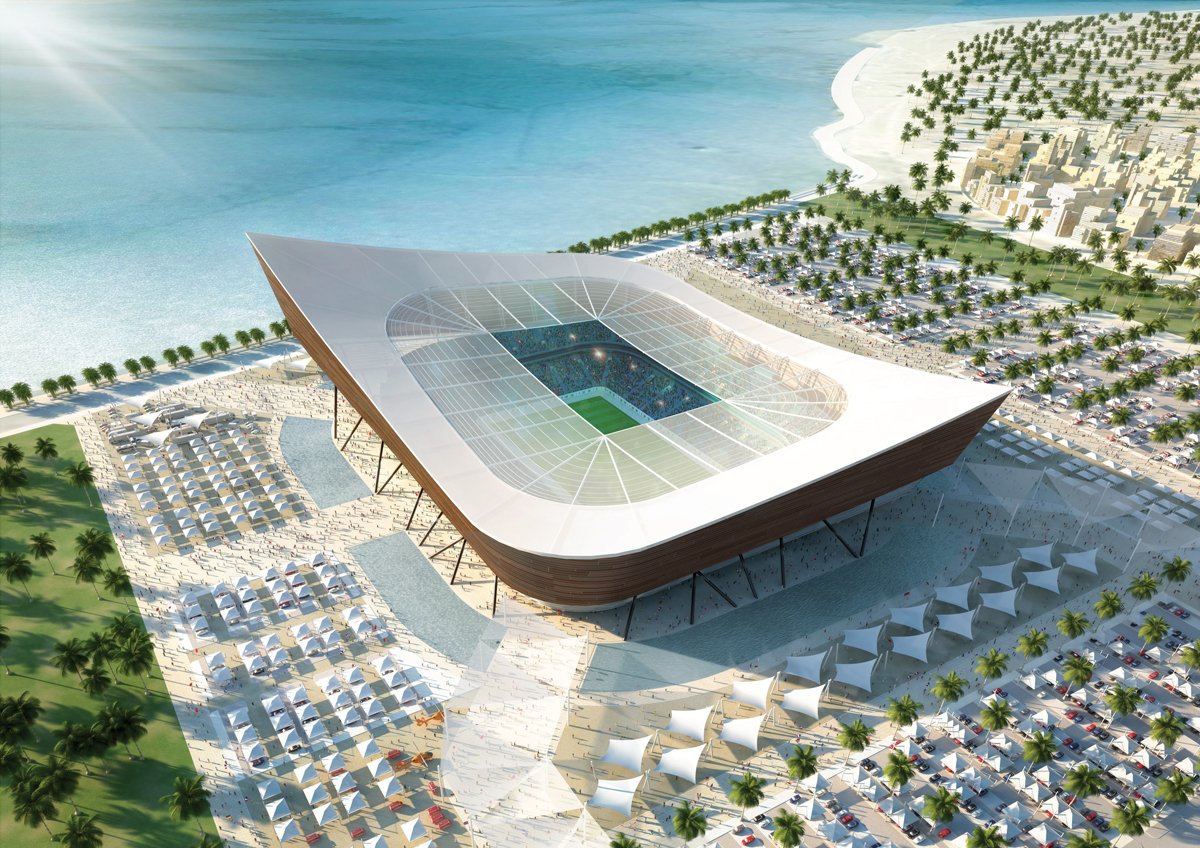Qatar is the richest state in the world based on per capita wealth, which is the main reason the tiny nation was chosen to host the 2022 World Cup, despite desert climate and dicey politics. When awarding the Cup or the Olympics, organizers can’t be too choosy, as few countries can or will expend the ton of money it takes to stage such a global event. Maik Grossekathöfer and Juan Moreno of Speigel interviewed Albert Speer, the German architect overseeing the building (and, yes, son of), as well as Friedbert Greif, managing partner and urban planner, and other principals. Two exchanges follow.
____________________________
Spiegel:
Your office has developed the master plan for the 2022 World Cup in Qatar. The concept calls for 12 stadiums to be built in the desert, some of them within sight of each other. Each seat is to be cooled and the temperature at the center of the field is to be 20 degrees Celsius (68 degrees Fahrenheit), even if outside temperatures rise to 50 degrees Celsius (122 degrees Fahrenheit). And all this is to be built in a country that has as many residents as Augsburg, Germany (population: 276,542) Weren’t we just talking about sustainability?
Albert Speer:
But of course we were. Here, too, sustainability has been a priority from the very beginning.
Spiegel:
The insistence on an ecologically viable World Cup on the Arabian Peninsula doesn’t sound particularly credible. Just look at Abu Dhabi, which has announced its intention to build a new carbon neutral city — right next to a Formula One race track.
Albert Speer:
We intend to do things better and don’t want to be connected to projects like those in Sochi, for example. Qatar is planned so that most of it can be disassembled afterwards and that, in the end, is of a dimension that suits the country. The upper levels are modular and can be removed to make a total of 22 smaller football stadiums, which will then be given to developing countries after the World Cup. Individual modules can also be used for track and field stadiums with room for 5,000 people. And for the cooling, we have developed a concept that is based on solar power.
____________________________
Spiegel:
Still, one can wonder if it makes any sense at all for a World Cup to be held in a tiny desert country like Qatar.
Friedbert Greif:
What kind of a question is that? Of course it is legitimate for a country like Qatar, and thus, the Arab world, to get the World Cup. It is arrogant to believe that football belongs to us Europeans. Furthermore, I don’t believe that what the Russians are doing (eds. note: The 2018 World Cup is to be held in Russia) is any more efficient. Venues there are up to 2,400 kilometers (1,491 miles) from each other. The amount of resources and energy that are being wasted to bring spectators from A to B is crazy. Russia, in this regard, is the opposite extreme.
Spiegel:
Qatar isn’t a democracy, there is no labor union for immigrant workers and there have been numerous reports of people dying at the construction sites. In the past, the country was also a safe harbor for leaders of Islamist organizations.
Albert Speer:
I think it is fantastic that, with the help of media reports — and well in advance of the World Cup — people are taking a closer look. And that things are changing. Ahead of each of our projects, we ask: Is it acceptable? For many years we have had good business relations with Saudi Arabia. There is trust there, and people there listen to us as well. We really do have the feeling that we are doing something positive for the country and the people there. That is our benchmark. For Qatar as well.•

